Cuban Futures Conference Report
Campaign News | Tuesday, 24 November 2015
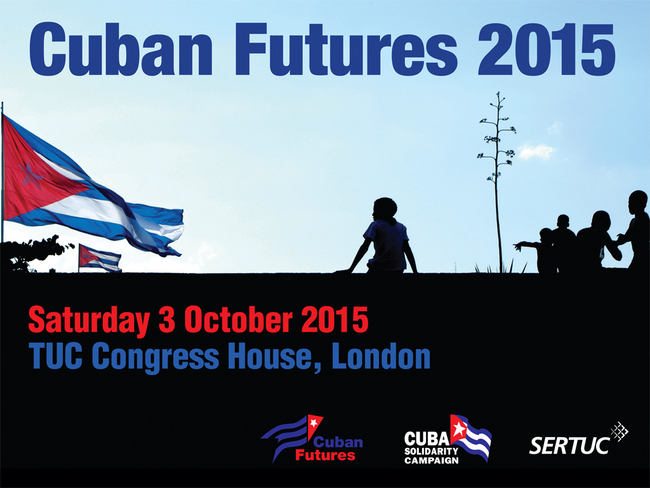
Following the thaw in relations between Cuba and the US, the conference aimed to examine the major threats and challenges facing Cuban society and the Cuban Revolution today and the role of the international solidarity movement in this rapidly changing environment.
Download a summary of the conference report
Watch recorded highlights from Cuban Futures
Browse the photo gallery of the event
17 December: a Cuban perspective
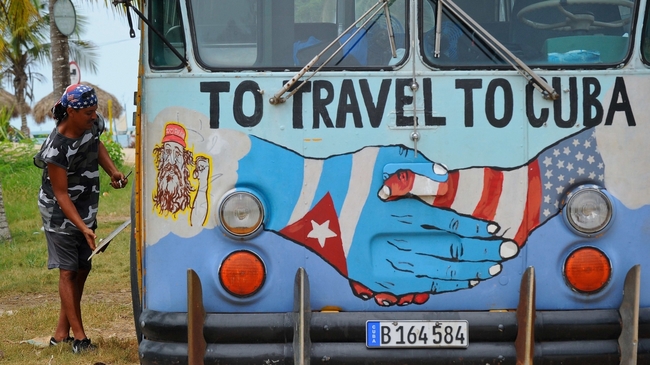
The beginning of a détente between the two countries, 55 years after diplomatic relations had broken down and the US had imposed the blockade. An associated prisoner swap saw the return home of the final members of the Miami Five, after serving 16 years of unjust imprisonment in US jails.
Cuban Futures took place ten months after diplomacy had resumed, and the Cuban speakers were asked to reflect on 17D and what it meant to Cuba.
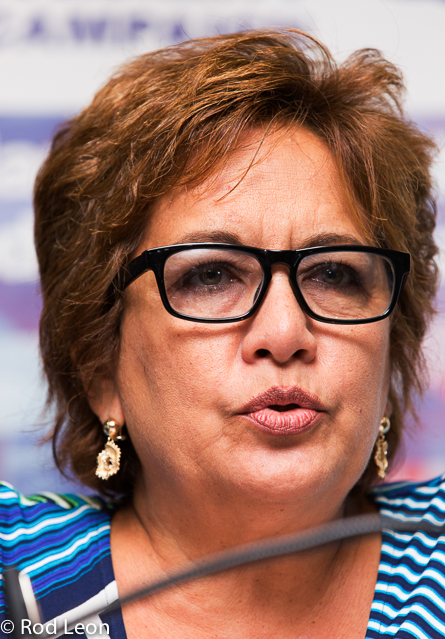 Arleen Rodriguez (Prominent Cuban journalist)
Arleen Rodriguez (Prominent Cuban journalist)

“It was the happiest day of my life – nothing to do with the relations between the US and Cuba, but because the Five returned home.”
“There is a sense of victory because they’ve had to recognise a government that they weren’t prepared to recognise for over 50 years. Obama didn’t negotiate with a new generation, he negotiated with the historic leaders of the Revolution."
“Another sense of victory is that throughout this long struggle, Cuba was accompanied. Latin America said, ‘You either sit down and negotiate with Cuba or we won’t sit down and negotiate with you.’”
Watch Arleen Rodriguez speaking in the opening plenary session
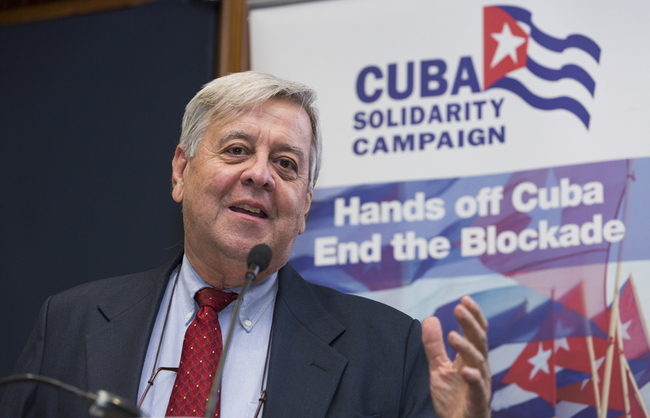 Dr Carlos Alzugaray (Former Cuban diplomat)
Dr Carlos Alzugaray (Former Cuban diplomat)

“My basic argument: if we can get to a point where the US accept certain basic rules with their relationship with Cuba then we can start talking about normalisation.
“That doesn’t mean that conflicts are going to disappear. There is an old conflict in the history of US-Cuba relations – a conflict between the ambition of United States’ hegemonic ambitions and Cuban will for independence and self- determination. That is an irreconcilable contradiction. But we can handle it. We have showed that we can resist it.”
“We wouldn’t be doing what we are doing if we didn’t have the conviction that right is on our side. Might may be on their side but right is on our side.”
Watch Carlos Alzugaray speaking in the opening plenary
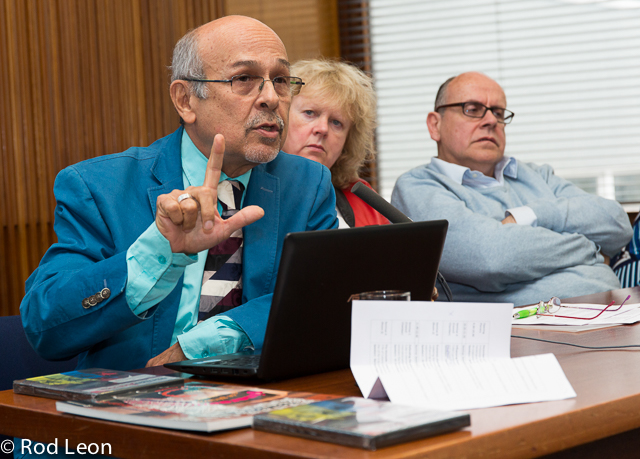 Dr Rafael Hernández (Author and editor of Temas magazine)
Dr Rafael Hernández (Author and editor of Temas magazine)

“What I think is important is that for the first time in history the United States is not looking down on Cuba as a subordinate or an enemy, but is treating Cuba as an equal. This is what they are doing – not what they are thinking.”
Watch Rafael Hernández speaking in the Round Table session
Opening Plenary: Challenges ahead
The difference between diplomatic and ‘normal’ relations Embassies may be open, and diplomatic relations and talks progressing, but there are five core issues that will need to be resolved before relations between the two countries can be considered normal.
Dr Carlos Alzugaray
1. The blockade must be ended
2. The US must stop funding illegal, subversive policies against Cuba, including TV and Radio Martí propaganda broadcasts
3. Cuba must be compensated for damages caused by the blockade
4. The illegally occupied territory of Guantánamo Bay must be returned
5. The Cuban Adjustment Act, which stimulates brain drain and encourages economic migration, must be ended
They all depend on unilateral actions by the US.
The western media says ‘Cuba has to do something’.
No. We don’t have to do anything. We are not going to make any concessions.”
Ending the blockade
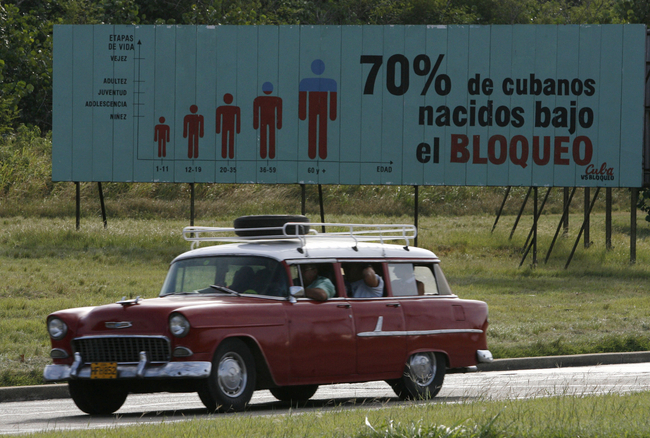
Over 70% of Cubans were born under the blockade
Cuba estimates that the blockade has cost the country over $833 billion dollars since its introduction in 1962.
Almost 77% of Cubans have been born under the blockade. The United Nations General Assembly has condemned the policy in 24 consecutive annual votes. All three Cuban speakers at Cuban Futures said ending the blockade was the biggest challenge to Cuba and to normalising relations with the US.
Rt. Hon. Brian Wilson (Former Energy Minister, Labour MP, Chair of Havana Energy)
“Let nobody tell you that the blockade is over… everywhere you turn there are obstructions. The British government has been complicit in that and continues to be complicit, not necessarily pro-actively, but reactively, in refusing to do anything that cuts across American foreign policy and American objectives. No British bank will go near Cuba as they are in fear of American sanctions.” “The closer the perception in the US that the blockade is going to be lifted, then the greater the vested interests of American business are that nothing should happen, in case by the time they get there others will have entered the field and will have closed down the options for them. So you have the paradox of the impression being that all this is changing, but actually there is logic in the fact that the blockade is in many ways just as tight as it ever was.”
Watch Brian Wilson speaking in the opening plenary session
Dr Carlos Alzugaray
“The main impediment of Cuba’s development policy continues to be the blockade. It is part of the relentless war and relentless animosity from the United States… One can never forget the original motives; hunger, desperation and the overthrowing of the Cuban government. They are the exact words used by the State Department in 1960. Sometimes people say in Cuba that the blockade has been genocidal. Well, that was the intention. It didn’t have a genocidal affect – as Cuba resisted. We must never forget this.”
Guantánamo – End the occupation
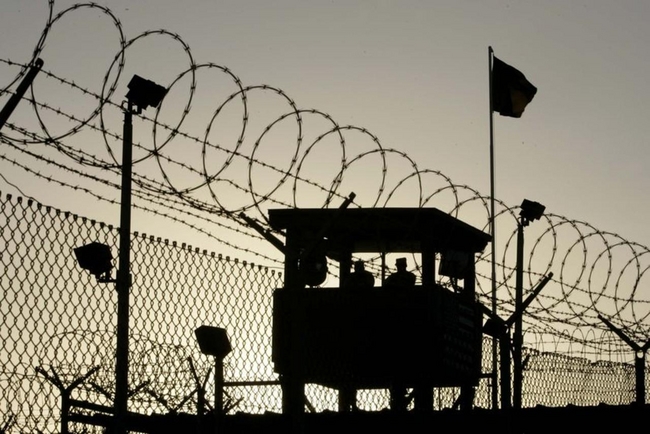
The territory of Guantánamo Bay has been occupied by a United States naval base for over a century.
It is the only US military base in the world that is not wanted by the host government. Roberta Jackson, lead negotiator for the US in diplomatic talks, has said that the return of Guantánamo is not on the agenda.
Dr Rafael Hernandez
“Guantánamo is the second largest bay in Cuba, but it can’t be used or developed because of the US naval base. It is the least developed province of Cuba and the bay is the most important natural resource of the area. The bay dominates the Caribbean range and is going to be much more important when the Panama Canal expands in 2016 as traffic through the Florida straits will increase. To have a bay with the natural conditions that this bay has, is something very important in terms of our national economic interest. Guantánamo’s economic interests are closed until we have the bay back and the military base is eliminated.”
Watch the Round Table discussion on Guantánamo
Seminar: Economic Challenges
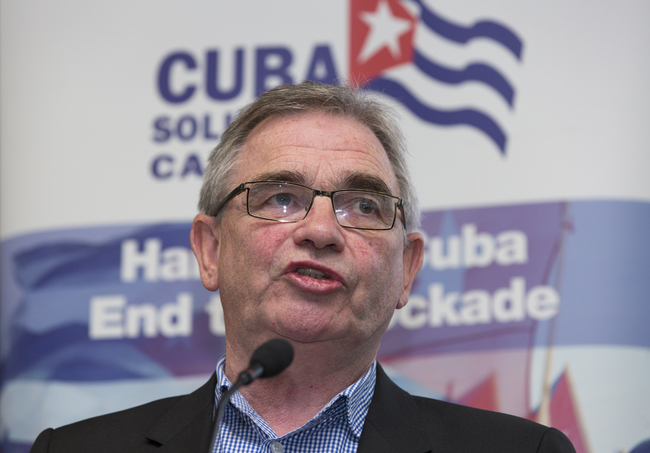 Rt. Hon. Brian Wilson
Rt. Hon. Brian Wilson

“There is a huge need for investment in Cuba. There are huge commercial opportunities because of the consequences of this wicked, 60 year war of attrition against the Cuban people. If we had a 60 year blockade here, our agriculture and our industry would be in the same condition. Our housing would be in the same condition. The opportunities are there, the needs are there.”
“More than any other country on earth, perhaps, the Cubans are aware that people coming in to Cuba for economic reasons may not be doing it in the interest of the Cuban people. They may be working against the interests of Cuba, or they may be indifferent to the interests of Cuba.”
Watch Brian Wilson speaking on economic opportunities for Cuba
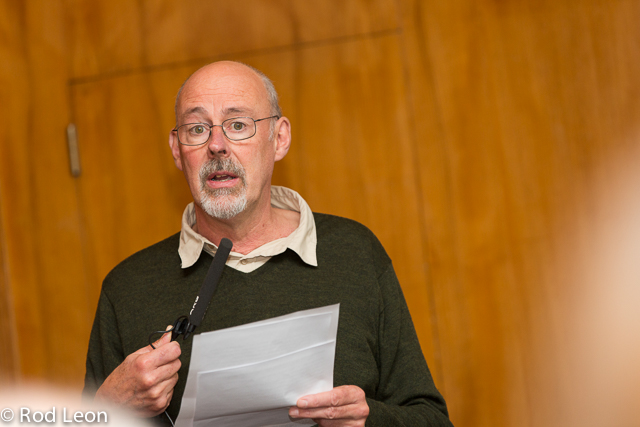 Dr Steve Ludlam (Senior Lecturer, University of Sheffield)
Dr Steve Ludlam (Senior Lecturer, University of Sheffield)

“Unions and workers remain major and active participants in the management of the Cuban economy at all levels, but they now do so in a world of labour that exhibits more of the challenges associated with market forces, notably job security, diversified and market-influenced salary systems, taxation systems for the self-employed, and a rapidly-expanding sector of private employment and self-employment. Cuba’s unions are well aware of these challenges and have conducted nationwide training programmes.”
Read Steve Ludlam's speech on the role of Cuban trade unions in shaping the economy
Watch Dr Steve Ludlam on Trade Unions in Cuba
Seminar: Defending the gains of the Revolution – What the US can learn from Cuba
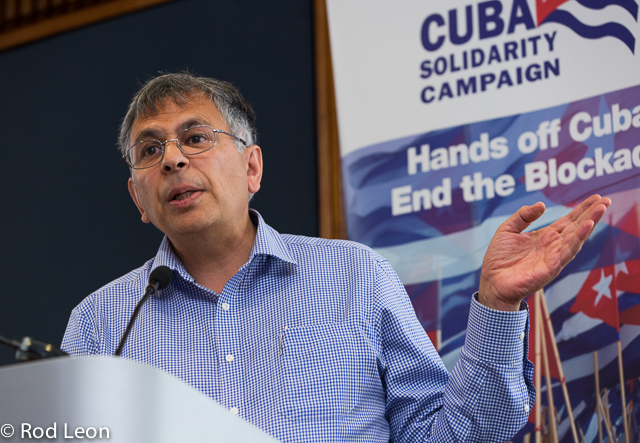 Dr Imti Choonara (Leading paediatric clinical pharmacologist)
Dr Imti Choonara (Leading paediatric clinical pharmacologist)

“If the US had the same infant mortality rates as Cuba, it would save thousands of US children’s lives each year.”
“In Cuba, the longest a child can wait to see a child psychologist is one week. In Derby it is nine months.”
Download Imti Choonara's PowerPoint presentation: Child Health in Cuba
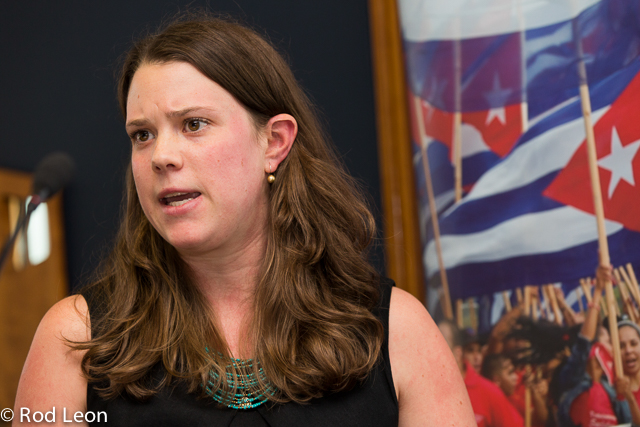 Dr Emily Kirk (Lecturer on Cuba, Nottingham University)
Dr Emily Kirk (Lecturer on Cuba, Nottingham University)

“Cuba was the first to show up – and sent the largest brigade – to the Ebola outbreak in West Africa.”
“Revolutionary Cubans see that the essence of being human is solidarity.”
Download Emily Kirk's PowerPoint presentation: Cuban Medical Internationalism
Seminar: US intervention - is it business as usual for US ‘regime change’ advocates?
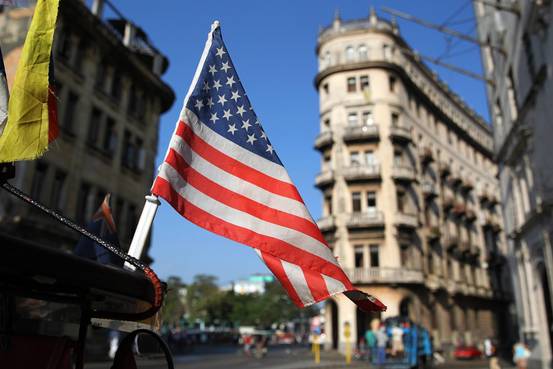
A further $30 million has been allocated since 17 December 2014 for regime change activities. In October 2015, the government department USAID advertised jobs with six figure salaries for Washington-based ‘Cuba Programme Managers’ to organise civil society, youth and community groups in Cuba. US subversive activities in Cuba clearly represent a huge barrier to normalising relations.
Dr Francisco Dominguez (Senior Lecturer, Middlesex University)
“It’s difficult to fight against propaganda against Cuba when so many institutions, governments and think tanks around the world are producing it.”
“From 1996-2012, there have been more than 1,400 programmes, and $304 million spent on regime change activites in Cuba.”
Download Francisco Dominguez's powerpoint presentation: Architecture of US Intervention
Keith Bolender (Canadian author and journalist)
“US tourists going to Cuba will be changed by Cuba more than Cubans will be changed by them.”
Read Keith Bolender's speech on US-Cuba relations
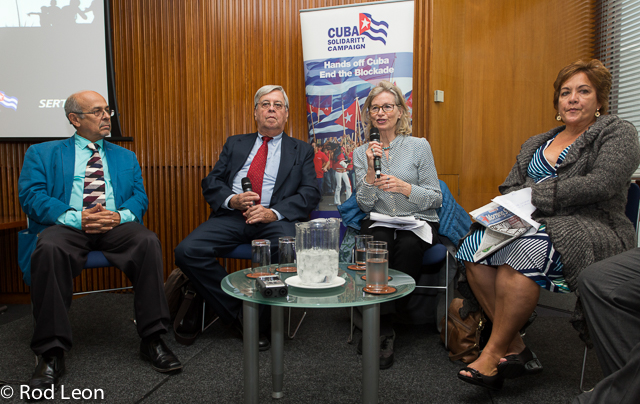 Round Table discussion
Round Table discussion

Former associate editor and foreign correspondent for the Guardian, Victoria Brittain, moderated a Round Table discussion based on Cuba’s own ‘Mesa Redonda’ current affairs show. Delegates were invited to submit questions in advance to the speakers which provoked a lively discussion.
Watch the Round Table discussion on Guantánamo
Closing Plenary: What next for Cuba and international solidarity?
Vigilance and continued campaigning – a strong message from Cuban Futures
The importance of international solidarity, both in the lead-up to 17D and for the future, as Cuba negotiates the long path to “normal” relations with the US, emerged as a prime message of the conference. Friends of Cuba and the solidarity movement need to redouble their efforts to end the blockade once and for all. Now the Miami Five are free, campaigning against continued funding for regime change activities and US occupation of Guantánamo will also become campaign priorities.
Arleen Rodriguez
“Media spin makes the world think the blockade is over, don’t let this disarm the global solidarity movement.
“I believe that just as in the case of the Five, the blockade will only be defeated by Cuban resistance and global solidarity. The solidarity campaign must continue working. Be very, very alert to the manoeuvres which could be taken against Cuba. There are people in the United States who are not happy about what is happening.”
Dr Carlos Alzugaray
“It is important that solidarity campaigns emphasise the illegal and immoral character of the blockade.
“We might end up with the American electorate deciding to elect Marco Rubio, Jeb Bush, Donald Trump – nobody knows what the possibilities are … We have to be aware, these processes are reversible. We haven’t reached the moment where these processes are irreversible yet.
“We will continue to need your support, your solidarity, and at the same time, I promise you, we will continue to build that prosperous, sustainable and fair society. We are not going to leave anyone behind in this struggle of the Cuban people.”
Watch Carlos Alzugary speaking in the closing plenary
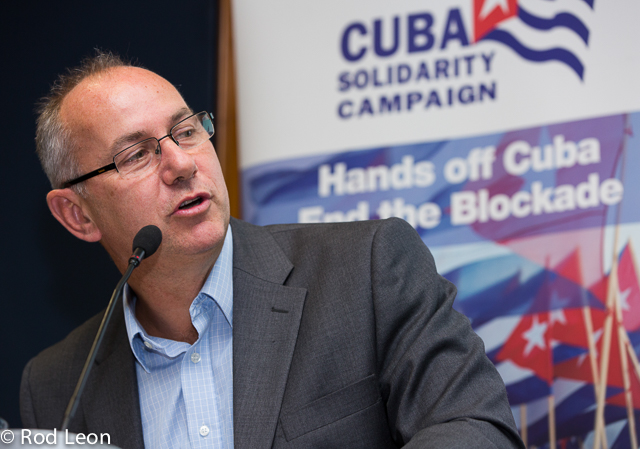 Rob Miller (Cuba Solidarity Campaign, Director)
Rob Miller (Cuba Solidarity Campaign, Director)

"Cuba has been a great example, an inspiration, and that example is built upon the sacrifice and the efforts of the Cuban people over many years. And our role is to repay their efforts by our own hard work, our own efforts and our own solidarity"
Watch Rob Miller speaking in the closing plenary
Cuban Futures 2015: links and resources
Conference Report
Highlights, quotes and images from the conference in an 8-page colour report
Films
Opening Plenary highlights
Brian Wilson: “Let nobody tell you the blockade is over” (11.52)
Carlos Alzugaray: Five challenges for normalised US-Cuba relations, part 1 (11.52)
Carlos Alzugaray: Five challenges for normalised US-Cuba relations, part 2 (5.45)
Arleen Rodriguez: “Obama negotiated with the historic leaders of the Cuban Revolution” (5:05)
Round Table discussion
Rafael Hernandez: "The U.S. have not changed their objectives, only the means" (7:13)
Round Table Session: The Future of Guantanamo (10.00)
Carlos Alzugaray: "The US has to come to terms with Cuban independence" (3:09)
Arleen Rodriguez: “December 17 2014: The happiest Day of My Life” (5:05)
Economy Seminar
Brian Wilson: “Everything is possible in Cuba” (9:28)
Dr Steve Ludlam: Trade Unions in Cuba (14.06)
Final Plenary
Carlos Alzugaray: "The US needs to act unilaterally, Cuba does not need to do anything” (8.55)Rob Miller: US-Cuba: A long way from normalised relations (20:01)
Power Point presentations
Architecture of US Intervention - Francisco Dominguez
Delegates packs
Plenary and Seminar titles and speakers
Conference speakers and biographies
Other documents and resources
Transcripts from video sessions
Keith Bolender's speech on US-Cuba relations
Photo gallery
Thanks to supporters
Cuban Futures was organised by the Cuba Solidarity Campaign and the South East Region TUC International Committee and supported by the Ken Gill Memorial Trust and Denis Blockley Memorial Trust Fund.
Thanks also to:
ASLEF Feltham Electric, B Armstrong,R Brunt, Community, CWU National, El Societe Grande, GMB Scotland, GMB Yorks & N Derbys, G Deiddaatzori, H Ives, J Gavan, J Peto, M Hartnett, C Howard, N Ellis, NUT Bolton, RMT National, TSSA, UCATT NW, UNISONInternational Committee and regions/branches: Durham, Sheffield City, Gateshead Health, Glasgow City, Hammersmith & Fulham, Monmouthshire County, Newcastle City, St Helens & Knowsley Health, West Midlands. UNITE National and regions/branches: Bamber Bridge, Bolton & District, SE/6246,Brighton SE/6246, Bristol Retired Members, Dartford & N Kent, E Midlands, Flyde Coast, LE 1365, LE2007, London & Eastern, NE/GEO/1 Sheffield East , NE/GEO/29 Durham Geog, Norfolk Gen. Engineering, Manufacturing & Servicing Ind, Northern Powergrid NE/204/5, North West, NW/64 BAE Systems Warton & Samlesbury Manufacturing, Preston & S Ribble (0522), Rolls-Royce Coventry, Scottish Executive Staffs, Slough 6235, Social Action (NW389), South East, Sudbury L/E 979, Tyneside EEES, W Midlands 7685, Yeovil SW/8007






